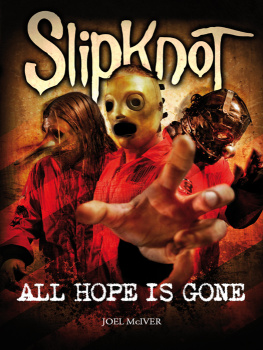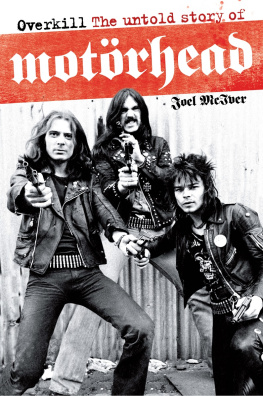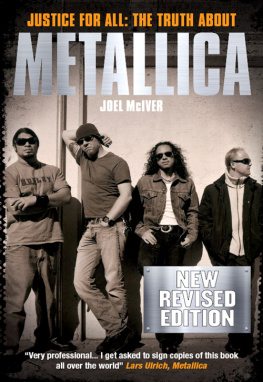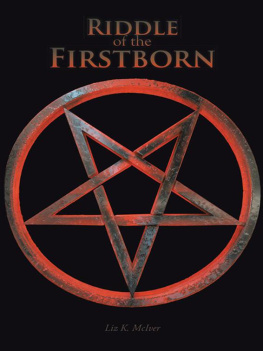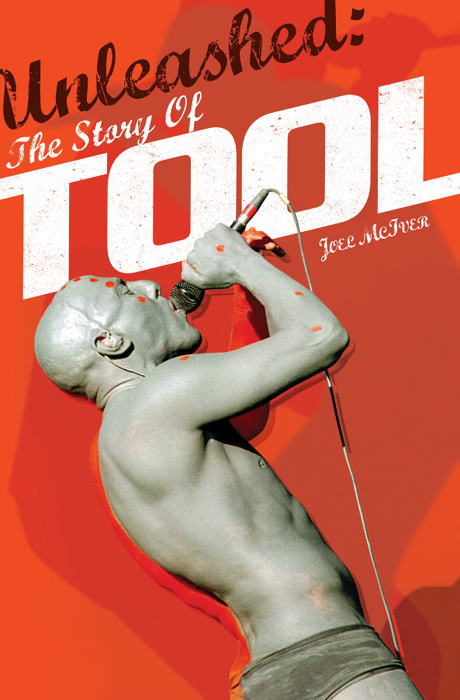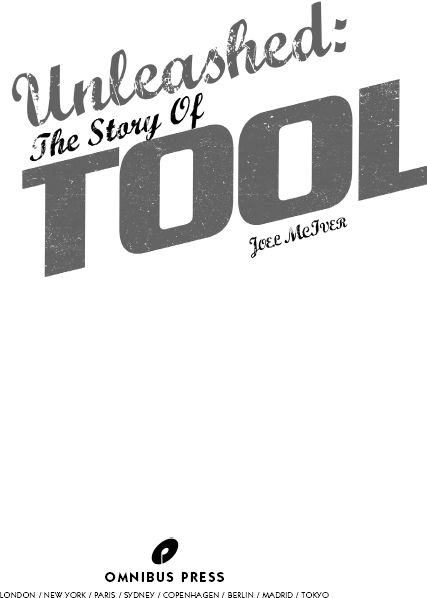Introduction
T hings really shouldnt have worked out for Tool, but against all the odds, they did. Heres why.
Popular music is called popular for a reason: because a lot of people like it. People usually enjoy it because its friendly, or warm, or moving, or thought-provoking. The greatest popular musicians of the six decades of pop so far have all known one simple truth: that to make popular music, you have to have an audience, and to have an audience, you have to connect with people. Connections are most easily formed through music when the message or emotion contained in a song is simple, direct and easily understood.
There is nothing simple, direct or easily understood about the American rock quartet Tool, but theyve sold close to 10 million albums over a two-decade career that shows no sign of slowing down, won a fistful of Grammy awards from a panel of industry experts who should really hate them, topped charts all over the world and still stayed on their own resolutely individual path. There was nothing easy about their rise to worldwide prominence, which is, of course, why youre holding a 100,000-word book that goes into rather more detail than the opening sentence of this introduction.
Most people think, What are you guys about? Explain yourselves, your music, your videos, complained Tools guitarist Adam Jones in 1997, adding Why do we have to explain everything? He had a point, and one that is made repeatedly throughout this book. The eye of the beholder is everything, say Tool, who refuse to publish their lyrics in their CD booklets, go too deeply into the meanings of their songs (apart from a few notable exceptions, as youll see), appear in their videos or perform many interviews. Disassociating their identities from their music, they believe, frees their songs to mean whatever the listener chooses, unshackled by the parameters of conventional thought. Deep stuff for a band that started out as just another pack of Los Angeles head-bangers
Its time for a Tool biography for two important reasons. First, the band are at the pinnacle of their career, issuing albums every four or five years as they see fit and redefining the face of rock music every time they do so. They may have started out on the club circuit, struggling to get their message across to every punk fanzine that would talk to them, but these days Tool are practically rock royalty, issuing edicts from on high when the whim takes them. Secondly, times have changed in rock music: the emergence of the progressive metal genre reveals that there is a market for music that is traditionally regarded as difficult music that only reveals its rich inner complexity after significant investment by the listener. Spin a Tool album a few times, especially one of their more recent releases, and the journey youll take will be long, rich, psychedelic, heart-stoppingly beautiful and not a little terrifying. This vibrant intricacy has been a key element of progressive rock by Yes, ELP, Caravan, King Crimson and others since the Seventies, but a new wave of bands such as Opeth and Meshuggah have accompanied Tool on the second leg of the progressive journey, supported by millions of fans. The times, they are a-changing again.
This book shows you how Tool fit into this haze of evolution. A couple of decades will be needed to reveal where they really fit into the pantheon of music, but until then, let these words show you the way.
Joel McIver, 2009
www.joelmciver.co.uk
Acknowledgements
Writers: Mark Brend, Steffan Chirazi, Ian Christe, Neil Daniels, Bernard Doe, Malcolm Dome, John Doran, Rob Dwyer, Murray Engleheart, Ian Fletcher, Gillian Gaar, Ian Glasper, Ross Halfin, Bill Irwin, Jake Kennedy, Christof Leim, Dave Ling, Joe Matera, Metalion, Greg Moffitt, Martin Popoff, Greg Prato, Steven Rosen, Joe Shooman, Tommy Udo, Jonathan Wingate, Henry Yates
Editorial staff: Adrian Ashton (Bass Guitar), Scott Rowley, Sian Llewellyn, Ian Fortnam, Geoff Barton (Classic Rock), Albert Mudrian (Decibel), Paul Brannigan, Nick Ruskell (Kerrang!), Alex Milas, Alex Burrows, James Gill, Caren Gibson, Jonathan Selzer (Metal Hammer), Alan Lewis, Jason Draper, Spencer Grady, Tim Jones, Ian Shirley (Record Collector), Phil Ascott, Chris Barnes (Rhythm), Steve Lawson, Claire Davies, Nick Cracknell, Lucy Rice (Total Guitar)
Industry personnel: Mike Exley (AFM), Darren Toms (Candlelight), Sarah Lees (Century Media), Joolz Bosson (Cooking Vinyl), Ron Veltkamp (Displeased), Talita Jenman, Dan Tobin (Earache), Sarah Vincent, Debra Geddes, William Luff, Tom Wegg-Prosser (EMI), Lars Chriss (Escapi), Andy Turner, Will Palmer, Andreas Reissnauer (Metal Blade), Zoe Miller (Mute), Jaap Wagemaker (Nuclear Blast), Matt Vickerstaff (Peaceville), Richard Dawes (Polydor), Michelle Kerr, Kirsten Lane (Roadrunner), Scott Bartlett (Scream), Alex Herron (Scuzz TV), Sabiene Goudriaan (Season Of Mist), Andy Lewis, Chas Chandler (Union Square), Daryl Easlea (Universal), Phoebe Sinclair, Ben Hopkins (Warners), Chris Charlesworth, Helen Donlon, Sarah Bacon, Michael Ohst (Omnibus Press and Bosworth), Laurence Baker, Dave Clarke, Tina Korhonen, Gary Levermore, Kas Mercer, Jarrod McMaugh, Ravi and Kim Parsan, Marc Riley, Clint Weiler, Ian Whent
Part Of Me: Emma, Alice and Tom above all, Robin and Kate, Dad, John and Jen, Naomi, the brothers Freed, the Corky Nips, Physt, Voon, Carlos Anaia, Bret Devooght, Jo Herbert, Tim Jolliffe, Jonathon Kardasz, Frank Livadaros, Billy Pilhatsch, Ian Salsbury, Louise Sugrue, Dora Wednesday, Elton Wheeler, the families Barnes, Bhardwaj, Bird, Cadette, Carr, Clark, Cooper, Edwards, Ellis, Eschapasse-Carr, Everitt-Bossmann, Foster, Gunn, Harrington, Hoare, Hogben, Houston-Miller, Johnston, Knight, Lamond, Legerton, Leim, Maynard, Miles, Parr, Sendall, Sorger, Tominey, Tozer and Woollard.
Chapter 1
Before 1989


